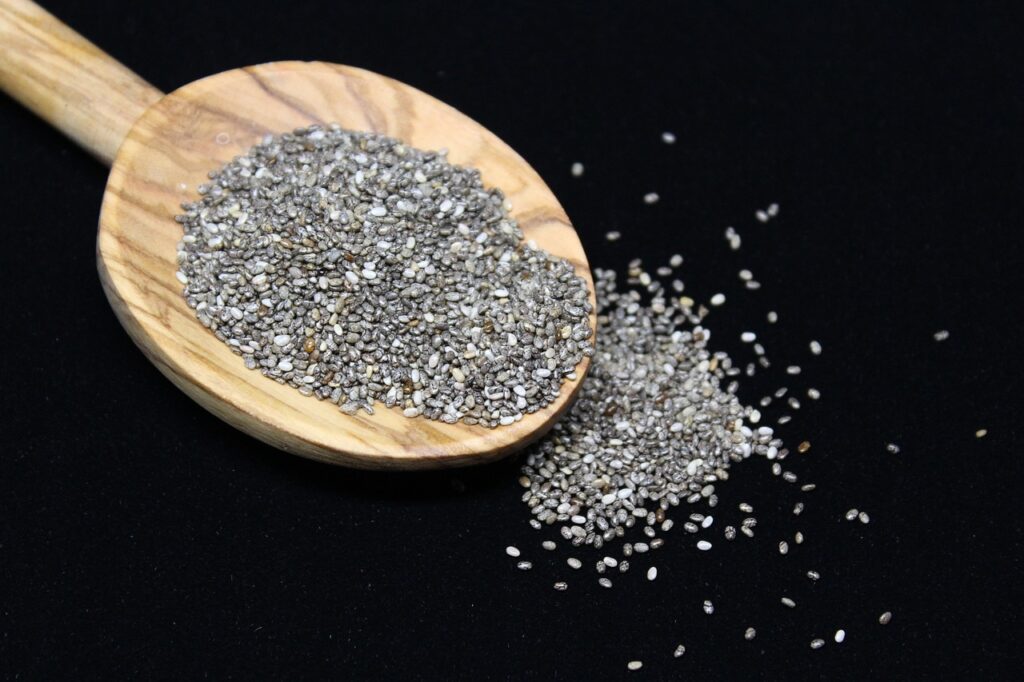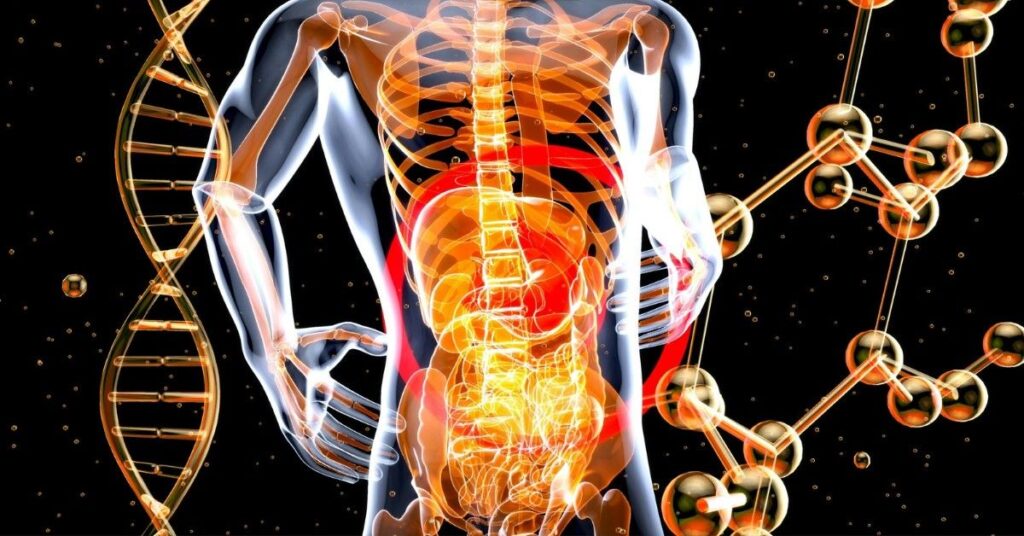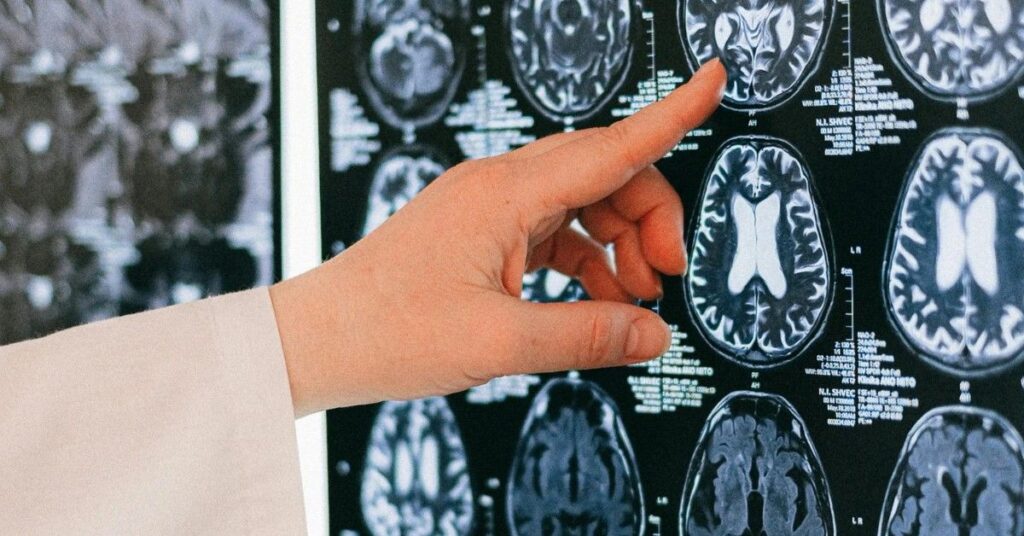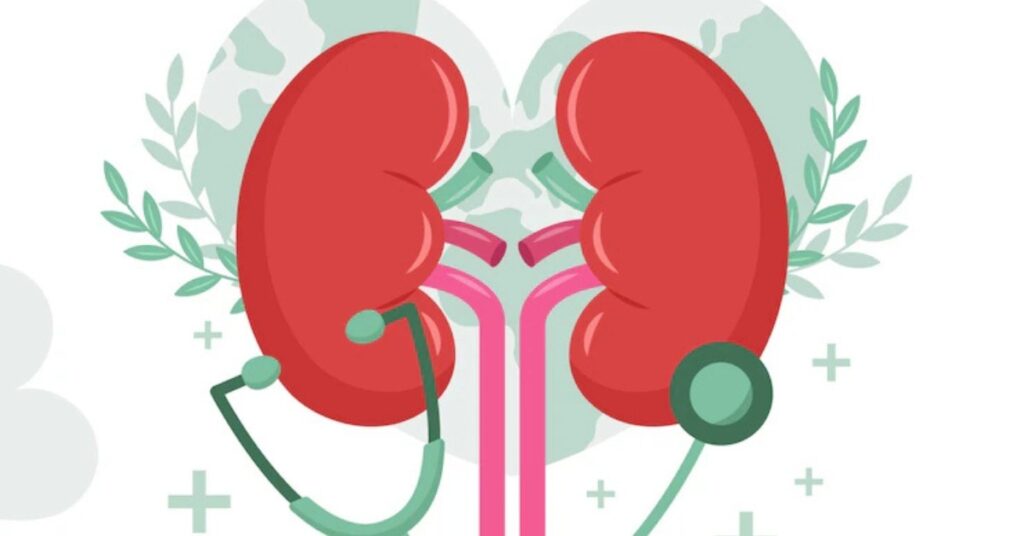
Chia seeds, though tiny in size, are packed with nutrients that offer a multitude of health benefits. Rich in fiber, omega-3 fatty acids, protein, and antioxidants, chia seeds support heart health, aid digestion, and assist in weight management. In this article, we will delve into the 9 health benefits of chia seeds and provide practical tips on how to incorporate them into your daily diet.
1. Nutritional Profile of Chia Seeds
Chia seeds are packed with essential nutrients, including:
- Omega-3 Fatty Acids: Approximately 60% of the fats in chia seeds are omega-3 fatty acids, particularly alpha-linolenic acid (ALA), which are crucial for heart and brain health.
- Dietary Fiber: A 28-gram (1 ounce) serving contains about 9.75 grams of fiber, aiding in digestion and promoting satiety.
- Protein: Chia seeds offer a plant-based protein source, containing all nine essential amino acids, making them a complete protein.
- Minerals: They are rich in calcium, magnesium, phosphorus, and iron, supporting bone health and overall bodily functions.
- Antioxidants: Chia seeds contain antioxidants like quercetin, chlorogenic acid, and caffeic acid, which help combat oxidative stress and inflammation.
2. Cardiovascular Health
Regular consumption of chia seeds has been linked to improved heart health:
- Cholesterol Levels: Studies indicate that chia seeds can reduce LDL (“bad”) cholesterol and triglyceride levels, contributing to a healthier lipid profile.
- Blood Pressure: Chia seeds may help lower blood pressure, particularly in individuals with high blood pressure, due to their high omega-3 and magnesium content.
- Anti-Inflammatory Effects: The antioxidants in chia seeds, such as quercetin, have anti-inflammatory properties that support cardiovascular health.
3. Blood Sugar Regulation
Chia seeds can aid in stabilizing blood sugar levels:
- Blood Sugar Control: The high fiber content in chia seeds slows carbohydrate digestion, leading to a gradual release of glucose into the bloodstream.
- Type 2 Diabetes: Incorporating chia seeds into the diet may help improve insulin sensitivity and reduce blood sugar spikes, benefiting individuals with type 2 diabetes.
4. Digestive Health
Chia seeds promote a healthy digestive system:
- Digestive Aid: The soluble fiber in chia seeds absorbs water, forming a gel-like substance that aids in bowel regularity.
- Gut Health: Regular consumption of chia seeds can support the growth of beneficial gut bacteria, enhancing overall gut health.
5. Weight Management
Chia seeds can assist in weight management:
- Satiety: The fiber and protein content in chia seeds promote feelings of fullness, reducing overall calorie intake.
- Fat Reduction: Some studies suggest that chia seeds may help reduce visceral fat, contributing to weight loss.
6. Bone Health
Chia seeds support bone health:
- Calcium Content: Chia seeds are an excellent plant-based source of calcium, essential for maintaining strong bones.
- Magnesium and Phosphorus: These minerals in chia seeds play a vital role in bone mineralization and density.
7. Skin Health
Chia seeds contribute to healthy skin:
- Antioxidants: The antioxidants in chia seeds help protect the skin from oxidative damage and premature aging.
- Hydration: Soaked chia seeds can retain water, aiding in skin hydration and elasticity.
8. Mental Health
Chia seeds may support mental well-being:
- Omega-3 Fatty Acids: The ALA in chia seeds is associated with improved mood and cognitive function.
- Anxiety and Depression: Regular intake of omega-3-rich foods like chia seeds may help alleviate symptoms of anxiety and depression.
9. Cancer Prevention
Preliminary research suggests that chia seeds may have anticancer properties:
- Antioxidants: Chia seeds contain antioxidants that may help protect cells from damage and reduce cancer risk.
- Anti-Inflammatory Properties: Chronic inflammation is linked to cancer development; the anti-inflammatory compounds in chia seeds may help mitigate this risk.
10. Easy Incorporation into Diet
Chia seeds are a versatile and nutritious addition to your daily meals. Their mild flavor and ability to absorb liquid make them suitable for various dishes. Here are some practical ways to include chia seeds in your diet:
Overnight Oats
Mix chia seeds with rolled oats and your choice of milk or yogurt. Let it sit in the refrigerator overnight to create a creamy, fiber-rich breakfast.
Chia Pudding
Combine chia seeds with milk or a milk alternative, and refrigerate until it thickens. Top with fruits, nuts, or a drizzle of honey for added flavor.
Smoothies
Add a tablespoon of chia seeds to your smoothie ingredients. They blend well and enhance the nutritional value without altering the taste.
Yogurt Topping
Sprinkle chia seeds over your yogurt for added texture and a boost of omega-3 fatty acids.
Baked Goods
Incorporate chia seeds into bread, muffins, or pancake batter. They can replace eggs in vegan recipes by forming a gel when mixed with water.
Salads
Sprinkle chia seeds over salads for a crunchy texture and added nutrients.
Energy Bars
Include chia seeds in homemade energy bars for a nutritious snack.
Chia Water or Lemon Chia Fresca
Soak chia seeds in water or lemon juice for a refreshing drink. Add a touch of honey or mint for extra flavor.
Precautions When Consuming Chia Seeds
Chia seeds are celebrated for their numerous health benefits, including being rich in omega-3 fatty acids, fiber, and antioxidants. However, like any food, they should be consumed with awareness of potential risks and precautions.
1. Hydration is Crucial
Chia seeds can absorb up to 10–12 times their weight in water, forming a gel-like substance. Consuming them without adequate hydration may lead to digestive discomfort, including bloating, gas, or constipation. To prevent these issues, it’s essential to drink plenty of water when consuming chia seeds.
2. Avoid Dry Consumption
Consuming dry chia seeds without adequate liquid can be hazardous. There have been cases where dry seeds expanded in the esophagus, causing blockages and requiring medical intervention. Always soak chia seeds in water or other liquids before consumption to ensure they expand properly and are safe to eat.
3. Start with Small Quantities
If you’re new to chia seeds, begin with small amounts to allow your digestive system to adjust. Gradually increase the quantity to the recommended daily intake of 1–2 tablespoons to minimize the risk of digestive issues.
4. Monitor Blood Sugar Levels
Chia seeds can lower blood sugar levels due to their high fiber content. Individuals with diabetes should monitor their blood sugar levels closely and consult with a healthcare provider before incorporating chia seeds into their diet, as they may require adjustments to their medication.
5. Be Cautious with Blood Pressure Medications
Chia seeds contain omega-3 fatty acids, which may lower blood pressure. If you’re taking antihypertensive medications, consult your doctor before adding chia seeds to your diet to avoid potential interactions.
6. Allergy Awareness
Although rare, some individuals may be allergic to chia seeds. Symptoms can include skin rashes, itching, or difficulty breathing. If you have known allergies to seeds like sesame or mustard, exercise caution and consult with a healthcare provider before consuming chia seeds.
7. Consider Digestive Health Conditions
Individuals with gastrointestinal conditions such as irritable bowel syndrome (IBS) or inflammatory bowel disease (IBD) should consult a healthcare provider before consuming chia seeds. The high fiber content may exacerbate symptoms in some individuals.
8. Pregnancy and Breastfeeding
There isn’t enough reliable information to determine if chia seeds are safe to use during pregnancy or breastfeeding. To err on the side of caution, it’s advisable to avoid chia seeds during these periods unless approved by a healthcare provider.
9. Avoid Overconsumption
While chia seeds are nutritious, consuming them in excessive amounts can lead to weight gain due to their high-calorie content. Stick to the recommended daily intake to enjoy their benefits without adverse effects.
Disclaimer: The information provided in this article is intended for general informational purposes only and should not be construed as medical advice. Before making significant changes to your diet, especially if you have underlying health conditions or are on medication, it’s essential to consult with a healthcare provider.












